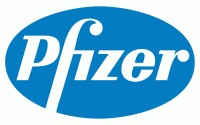Pfizer (PFE) to Discontinue Bococizumab Development Program; Sees EPS Impact

Get Alerts PFE Hot Sheet
Revenue Growth %: -23.7%
Financial Fact:
Less: Net income attributable to noncontrolling interests: 0
Today's EPS Names:
UXIN, TOWN, NRIM, More
Join SI Premium – FREE
Pfizer Inc.(NYSE: P)FE announced the discontinuation of the global clinical development program for bococizumab, its investigational Proprotein Convertase Subtilisin Kexin type 9 inhibitor (PCSK9i). The totality of clinical information now available for bococizumab, taken together with the evolving treatment and market landscape for lipid-lowering agents, indicates that bococizumab is not likely to provide value to patients, physicians, or shareholders. As a result, Pfizer has decided to discontinue the development program, including the two ongoing cardiovascular outcome studies.
With the completion of six bococizumab lipid-lowering studies, Pfizer has observed an emerging clinical profile that includes an unanticipated attenuation of low-density lipoprotein cholesterol (LDL-C) lowering over time, as well as a higher level of immunogenicity and higher rate of injection-site reactions with bococizumab than shown with the other agents in this class. The goal of treating elevated cholesterol is to reduce the occurrence of cardiovascular events such as heart attacks and stroke, which requires long-term effective and durable cholesterol-lowering.
“As a company, we understand that developing new and important medicines for patients is a critical, but difficult undertaking. Accordingly, we continually evaluate our development programs as data emerge to support prudent decisions that provide value both to the patients we serve and our shareholders,” said James Rusnak, MD, PhD, Chief Development Officer, Cardiovascular and Metabolic Diseases, Pfizer Global Product Development. “We are disappointed by this outcome, but remain committed to investing in innovation, concentrating our pipeline on areas where we can bring transformational therapies to address unmet needs, including in patients with cardiovascular and metabolic diseases. We thank the investigators, their patients, and support staff who have participated in this important research program.”
Pfizer is working to ensure that all regulatory authorities are informed, and that all trial investigators are informed and instructed on next steps. If patients have questions, they should speak with their study physician for more information.
“To honor the altruism of trial participants, and to maximize the clinical and scientific knowledge derived from the halted trials, Pfizer has committed to ensuring that the data will be made available to study leaders for independent analysis and prompt public presentation. We believe the available data will allow us to test the core scientific questions posed by the overall program which is in the best interest of patients who volunteered in these clinical trials, and for patients worldwide who suffer from heart disease,” stated Paul M. Ridker, MD, Co-chair Executive Committee, SPIRE clinical trials program and director for Cardiovascular Disease Prevention, Brigham and Women’s Hospital.
It is estimated that the discontinuation of the bococizumab development program will have a negative impact of approximately $0.04 per share on both a GAAP and adjusted basis. Pfizer will record this as a Research and Development charge in the fourth quarter of 2016 and is incorporating this estimated impact into its updated 2016 financial guidance, which will be provided in conjunction with its third quarter earnings release to be issued this morning.
Bococizumab is a PCSK9i that was studied for its potential to lower LDL-C and improve cardiovascular outcomes. It works by blocking the function of the PCSK9 protein, which interferes with the clearance of LDL-C, a leading known risk factor for heart disease. Bococizumab has not received regulatory approval in any country.
The bococizumab SPIRE (Studies of PCSK9 Inhibition and the Reduction of vascular Events) Phase 3 global clinical development program included six lipid-lowering studies as well as two cardiovascular outcome studies. Pfizer previously announced that four of the lipid-lowering studies met their primary endpoints (SPIRE-SI, SPIRE-AI, SPIRE-HR, SPIRE-FH). Recent top-line results also showed the two remaining Phase 3 bococizumab lipid-lowering trials, SPIRE-LDL (Low-Density Lipoproteins) and SPIRE-LL (Lipid Lowering), met their primary endpoints, demonstrating a significant reduction in the percent change from baseline in LDL-C at 12 weeks compared to placebo among adults with primary hyperlipidemia or mixed dyslipidemia at high and very high risk for cardiovascular events who were receiving statin therapy. Bococizumab was generally safe and well tolerated in both trials.
An evaluation of cross-reactivity to other PCKS9i monoclonal antibodies was not suggestive of clinically important concerns.
With this decision to discontinue the bococizumab development program, Pfizer will now halt the two ongoing cardiovascular outcome studies, SPIRE-1 and SPIRE-2.
Serious News for Serious Traders! Try StreetInsider.com Premium Free!
You May Also Be Interested In
- IBM tumbles on soft Q1 revenue; announces HashiCorp $6.4bn acquisition
- Merck (MRK) hikes outlook for 2024 as Q1 print beats analyst estimates
- Southwest Airlines (LUV) stock tumbles after missing Q1 earnings, revenue expectations
Create E-mail Alert Related Categories
Corporate News, FDA, Guidance, Hot Corp. News, Management CommentsRelated Entities
Twitter, EarningsSign up for StreetInsider Free!
Receive full access to all new and archived articles, unlimited portfolio tracking, e-mail alerts, custom newswires and RSS feeds - and more!



 Tweet
Tweet Share
Share